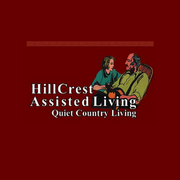
Dementia is a complex, gradual illness which makes it difficult to spot. If your family member exhibits symptoms, they’re probably subtle but may follow a pattern. These are the warning signs elderly care professionals encourage you to look out for when interacting with your senior loved one.
Warning Signs Your Loved One Has Dementia
1. Memory Loss
Memory loss is the most well-known and recognizable symptom of dementia. Seniors with dementia may struggle to recall the day’s activities or who they’ve spoken to. They may even forget upcoming events or appointments.
Short-term memory may suffer, but you can appeal to their fond long-term memories and ask questions as brain exercises. They may need to rely on family or elderly care services for help with scheduling.
2. Difficulty with Daily Tasks
Cooking a meal and getting dressed become complicated frustrating for people with dementia. They may also struggle to speak, understand others, or write. These tasks are known as “activities of daily living” (ADLs).
Assisted living can help with ADLs because there are medical professionals on-site. The facility may occasionally have an occupational therapist to remind them of movement to cook or write. Or, if necessary, a speech therapist may be present to remind them how to swallow food and avoiding choking.
3. Difficulty Problem Solving
Poor judgement and lack of logic result when a senior doesn’t have complex thought. Following directions when driving or buying something at the store can often become too complicated for seniors with dementia. If they can’t figure out how to do something, you can compartmentalize an activity into steps to make it easier.
5. General Confusion
Confusion is a crucial symptom of dementia and can manifest in many ways. Seniors with dementia may struggle with time and date, wonder where they’re at when in a previously familiar area, and may have difficulty with numbers and words. If you speak in short, clear sentences, this will make your communication clearer. Additionally, you can limit white noise from television and radio so they can focus on you.
5. Personality and Mood Changes
 After you notice mental function declining, you will notice a personality change. Look for extreme shifts like a senior against profanity who now swears. Or, if they were personable, but now avoid people, and they are generally rude. They may also display inappropriate behavior, like hitting or disregarding people’s personal space. Their personality change may pair with a doctor’s psychological diagnosis for depression or anxiety.
After you notice mental function declining, you will notice a personality change. Look for extreme shifts like a senior against profanity who now swears. Or, if they were personable, but now avoid people, and they are generally rude. They may also display inappropriate behavior, like hitting or disregarding people’s personal space. Their personality change may pair with a doctor’s psychological diagnosis for depression or anxiety.
If you believe elderly care may help your loved one, reach out to the professionals at Hillcrest Assisted Living in Columbia, MO. Their comfortable living quarters and professional medical care can help your loved one maintain their lifestyle without fear. The facility has trained medication staff available 24/7 as well as a full-time LPN and part-time RN. To learn more about their facilities and senior care services, visit their website or call (573) 696-3201.
About the Business
Have a question? Ask the experts!
Send your question

